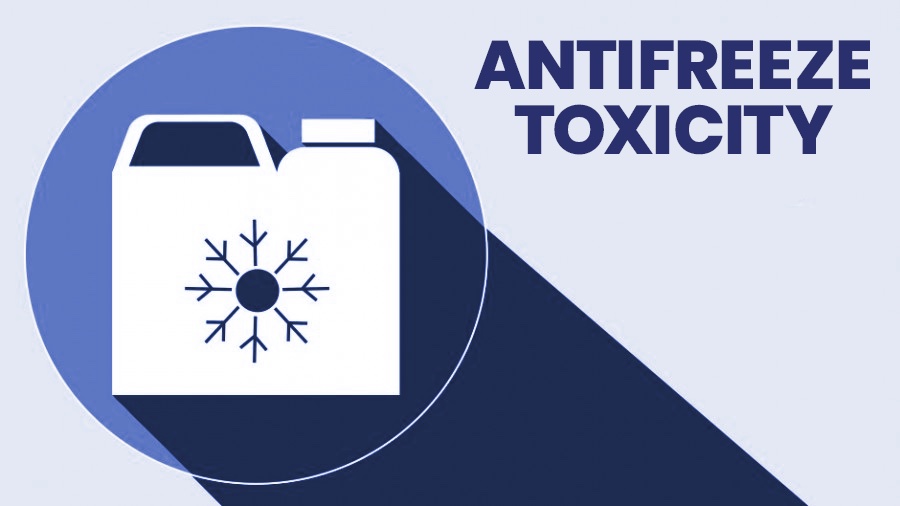Antifreeze is more common during this time of year when the weather is chilly and our engines are susceptible to freezing, but it’s not entirely safe and it’s important to understand the danger it poses to our pets.
Antifreeze contains ethylene glycol, an organic compound that can cause ethylene glycol poisoning. It’s a potentially fatal condition that is caused when one ingests the compound, and pets are often exposed to antifreeze in a variety of different ways. For instance, your car may leak antifreeze from the engine to the ground or it could be spilt when you’re pouring it into your car engine. The container may also be loose or leak antifreeze down the side when you put the cap back on, and this will be exposed to your pets.
It’s one of the most common forms of poisoning in pets. If your pet does ingest antifreeze then it’s important they receive immediate care. However, prevention is always the best way to deal with something like antifreeze, and we’ll be talking about it in this article as well as some emergency tips.
Symptoms of Antifreeze Poisoning
In most cases, you’ll start to see symptoms within 30 minutes to 12 hours of your pet ingesting antifreeze. Some symptoms can also develop 2 to 3 days after ingestion.
- Nausea
- Vomiting
- Depression
- Uncoordinated movement
- Muscle twitching
- Rapid eye movement
- Head tremors
- Slowed reflexes
- Increased thirst
- Frequent urination
The following symptoms typically show up 2 to 3 days after initial symptoms appear
- Continued urination but reduced thirst
- Low body temperature
- Sluggish movements
- Seizures
- No appetite
- Vomiting
- Sores or ulcers in mouth
- Drooling
Recognising Antifreeze
It’s important that you recognize the bright green color of antifreeze and the sweet smell that comes from it. Small amounts are toxic to the body when ingested, so if you notice any of the bright green liquid around your garage or car, make sure you clean it up before your pets are attracted by the smell.
Preventing Antifreeze Poisoning
The best method to avoid antifreeze poisoning in your pets is to take preventive measures.
- Always keep antifreeze bottles out of reach from your pets. This includes locking them in cabinets and not placing them on open shelves.
- When using antifreeze, make sure your pet is away from your car so they won’t smell or become curious about the antifreeze.
- Make sure you seal the antifreeze bottle tightly when you’re finished using it.
- Wipe up and clean any antifreeze that may have leaked when you placed the fluid in your engine.
- If you do spill the antifreeze, keep your pet far away from it as you clean it.
- Check your car frequently after using antifreeze to ensure that it isn’t leaking out of your engine and out underneath your car.
- Purchase antifreeze that contains propylene glycol as an active ingredient. This is less toxic and doesn’t have a sweet smell or taste.
If you suspect your pet has ingested antifreeze or any other toxic substance, please call us immediately at (651) 484-3331.
Image credit: iStock / Getty Images Plus

